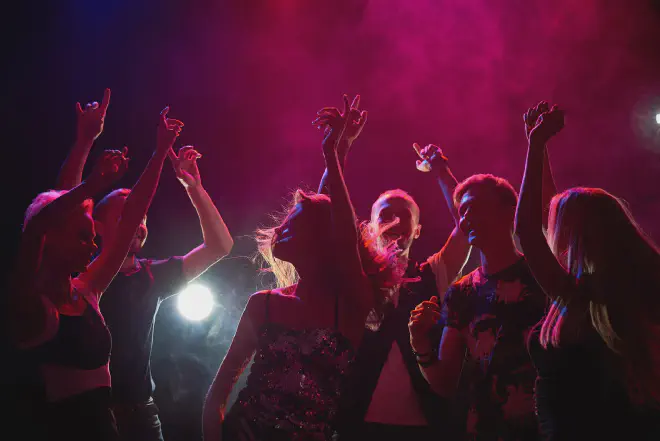

Ayia Napa, Magaluf, Ibiza, and Mykonos, have a reputation for being party holiday destinations. Every year, young people head off with their friends to one of these destinations on a ‘girls trip’ or ‘lads on tour’ holiday, characterised by constant clubbing, drinking, partying and the potential for one-night stands or a holiday fling.
Dr Columba Achilleos-Sarll, Assistant Professor in Political Science and International Studies, said: “Whilst existing research on SGBV in tourism is limited, we know that it happens. In 2018, 315 British tourists reported being victims of rape and sexual assault on holiday, and in an airport survey, more than 6,500 young British and German tourists returning home from holidays in tourist resorts in Greece, Cyprus, Italy, Portugal and Spain found that 8.6% of participants reported experiencing sexual harassment.
“Our research sets out how the party tourism business model creates liminal spaces where extreme behaviour is encouraged, creating an environment for SGBV to take place, and how destinations deprioritise the safety of women tourists for the sake of economic revenue”, she added.
The framework looks at three main areas:
-
How tourism businesses create liminal bubbles centred on non-stop partying.
-
How these bubbles promote excessive, predatory masculinities.
-
How tourism-dependent locations protect these bubbles to maintain their reputation and preserve revenue.
This ‘party environment’ then reinforces existing gendered hierarchies, creating a permissible environment for SGBV. Tourism stakeholders construct party tourism destinations in a way that mainly caters to heterosexual male desires, fuelled by excessive alcohol consumption, commodifying bodies, and facilitating the sexual objectification of women. This is used to entice young men to spend money, for example, paying €40 each to be escorted on bar crawls by ‘semi-naked women working for nightclubs’, while club promoters encourage men to visit the lap-dancing and strip clubs.
Dr Achilleos-Sarll continued: “These behaviours are not random or isolated; they are embedded within the political economy of party tourism. Not all male tourists will take part in this behaviour, and not all female tourists will become victims of sexual assault, but the party tourism bubble indeed encourages young men to enact ‘laddish’ behaviours, which include the sexual objectification of women and sexual predation, leaving women to manage the associated risk. The UK Foreign Office advice to tourists visiting Cyprus warns against the risk of ‘drug-assisted rape’, placing the responsibility on women to manage their own safety, and recommending to British tourists: ‘Buy your own drinks and always keep sight of them. Avoid splitting up from your friends’.”
Dr Achilleos-Sarll concluded: “Party tourism’s business model is based on extreme behaviour and reinforced gender inequalities, and a dependency on a fun and safe reputation to make money across multiple scales, all operating in mutually reinforcing ways to generate profitability and income. This mix allows SGBV to flourish and often remain hidden. In order to better protect holiday makers, that model needs to be challenged, exploring alternatives for a sustainable and just approach to tourism development.”
Citation #
- The article Sun, sea and sexual violence: the political economy of party tourism was published in the journal International Affairs
Sun, sea and sexual violence: the political economy of party tourism Open Access
Columba Achilleos-Sarll , Nicola Pratt Author Notes
International Affairs, Volume 101, Issue 4, July 2025, Pages 1403–1419, https://doi.org/10.1093/ia/iiaf074
Published: 01 July 2025
- The article Sun, sea and sexual violence: how party tourism promotes and permits sexual assault - study was published in the news section on University of Birmingham website
Contact [Notaspampeanas](mailto: notaspampeanas@gmail.com)

